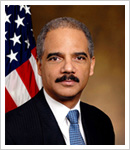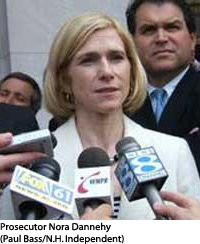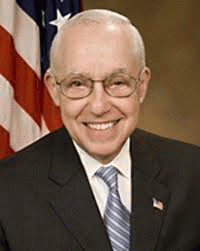Here's why the Justice Department's halt to its probe of CIA obstruction of justice involving torture looks like another whitewash.
The DOJ compromised its probe from the beginning in 2008 by assigning it to Connecticut federal prosecutor John Durham, whom courts have twice implicated in suppressing evidence. In one of those cases, a federal judge rebuked him also for what she described as "severe misconduct" during cross-examination.
As background on this week's case, the DOJ announced Nov. 9 that it would not file obstruction of justice charges against CIA personnel for destroying 92 videotapes showing CIA interrogation of terrorism suspects in 2005 using waterboarding.
"This decision is stunning: There is ample evidence of a cover-up regarding the destruction of the tapes,'' commented ACLU Executive Director Anthony Romero. "The Bush administration was instructed by a court of law not to destroy evidence of torture, but that's exactly what it did.''
No one should be surprised.
In today's report, the Justice Integrity Project reveals that U.S. District Judge Janet Arterton in New Haven found Durham was part of a prosecution team that failed to turn over evidence to the defense in a gun possession case. Her 57-page ruling also said Durham then engaged in "severe misconduct" during an "incendiary cross-examination" of a key defense witness. As a result, the government dropped its charges against the defendant, Anthony Washington.
Another of Durham's controversial cases was the prosecution of Connecticut businessman Charles Spadoni on corruption charges. The case also compromises the credibility of Durham's Connecticut colleague Nora Dannehy, whom the DOJ entrusted to probe potential misconduct by her colleagues in orchestrating the DOJ's notorious political purges in 2006.
Let's recap revelations about these two prosecutors from our investigative report published last July in Nieman Watchdog.
Under Durham's overall supervision at their office, Dannehy was the lead prosecutor against the businessman Spadoni during his 2003 trial on campaign finance-related charges. In 2008, the U.S. Second Circuit Court of Appeals vacated the major convictions because prosecutors improperly suppressed evidence.
Shortly after the ruling, Bush Attorney Gen. Michael Mukasey, named Dannehy as the special DOJ investigator into potential lawbreaking in DOJ' s unprecedented mid-term firing of U.S. attorneys in 2006 for political reasons.She primarily focused on one firing, that of New Mexico U.S. attorney David Iglesias. She made no apparent effort during her two-year investigation to interview the victims around the country of politically motivated decision-making. In July, the DOJ under Mukasey's successor Eric Holder, below, announced that her confidential report showed no basis for criminal charges against anyone.

The probes by Durham and Dannehy illustrate features that reappear in other major DOJ internal investigations of scandals. The probes are announced with fanfare and assigned to investigators with seemingly sterling credentials, but who may be compromised or otherwise incentivized in ways known only to insiders. The investigations are inherently secret, often with hidden groundrules that foreclose speaking to the best witnesses, and can stretch for years until public attention dwindles. Then they end with scant results.
Harper's contributor Scott Horton is among those who see this kind of pattern, as in his "Another DOJ Whitewash" column last summer about Dannehy and Durham. But even the best isolated commentaries are no substitute for daily reporting, which is all that most top officials and the public ever see.
And those assigned on a regular basis to law enforcement beats (as I was for five years at the Hartford Courant many years ago in Connecticut) are seldom in a position these days to go into much depth. In this instance, it would have required identifying, without any hint or encouragement from the DOJ itself, that the leaders of two major internal misconduct investigations might be productively researched via court decisions about their own track records.

We've tried without success to obtain comment and any other additional perspective from Durham, Dannehy and DOJ's official spokespeople. They've kept mum.
(Note: You can view every article as one long page if you sign up as an Advocate Member, or higher).






